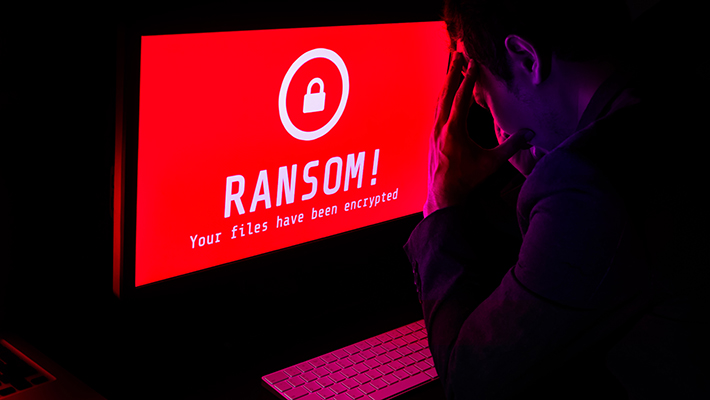Cyber Security – What’s Your Plan of Attack?

You can’t read or watch a news report these days without the mention of cybersecurity, as attacks on businesses are becoming more frequent and more sophisticated. In particular, ransomware attacks are significantly on the rise. According to a recent Harvard Business Review article, ransom attacks were up 150% over the previous year with the amount paid by victims of these attacks increasing by more than 300%.
If you think your company won’t get hit, or if security isn’t one of your highest IT priorities right now, you’re taking a gamble. Your systems are being flooded daily by hackers looking for a way in, they just haven’t found it yet. Companies, large and small have been stopped in their tracks by cyberattacks – we only hear about a small percentage of them in the news. Altec can attest to the hits as we have seen a surge of customers being affected.
First and foremost, if your company isn’t already working with an expert security company, they should be. The sophistication of these attacks requires expert personnel that can address every facet of your infrastructure. Focusing on how to protect yourself from being attacked is key. Make sure you’re addressing this with your technology partner who can help you navigate finding the best, most reputable firm to help you before you get hit.
Part of any security strategy is preparing your company for WHEN you’re attacked. It’s not sexy or headline-worthy, but the most important aspect that could be the difference between staying in business or not is…backing up your data. Data backup has long been the unappreciated stepchild because you don’t need it – until you NEED it.
Many companies nowadays have what is called cyber insurance, that could pay the ransom for your data, but there’s no guarantees you’ll get all your data back in a timely manner or at all, making data backups essential.
Also, the pandemic has exacerbated the need for backups even more. Companies have been forced to greatly accelerate support for their remote workforces, digital transformation and migration to the cloud, which has put even more pressure on IT teams to protect and secure company data.
It’s time to put data backup at the top of your technology to-do list. A recent Network Computing article about World Backup Day identified four best backup practices for businesses looking to support a hybrid workforce, including:
- Review existing data: Before developing a backup and recovery strategy, review the current data architecture. Knowing who owns data and applications, current backup policies, and applicable regulations and requirements positions you for success.
- Follow the 3-2-1 backup rule: Don’t forget the basics. Always keep at least three copies of your data, using two different backup media, and storing one copy offsite, ideally in a separate account to isolate it from ransomware attacks.
- Invest in a cloud backup solution: Since data is so distributed, investing in a cloud backup solution has become a necessary line of defense in today’s modern IT landscape. Unlike on-premises backup protection, the cloud offers connectivity to all data sources, limitless storage for backups, and significantly lower management costs.
- Perform regular tests: A backup that has not been tested is a backup that should not be trusted. The best way to ensure that your backup is tested on a regular basis is to automate such testing. Not only will this ensure it gets tested more often, but it will also ensure that the team will be comfortable with running a recovery when the disaster strikes.
One of the difficulties companies may have with implementing a backup strategy is where their documents are stored and how long backups can take with distributed data. This is where a solution like DocLink comes into play because storing ALL your documents in DocLink’s central repository makes backups even easier. DocLink not only allows you to store your financial documents together but all your important business documents as well, such as contracts, employee files, and more.
With DocLink, customers can simply back up their DocLink database as well as their DocLink IMStore (source of all images for their image repository) frequently to ensure their business can continue. Best of all, DocLink provides greater visibility and accessibility to these documents so your new hybrid workforce can be efficient from wherever they’re working.
Backups benefit the hybrid workforce model and are the most reliable way to recover your data in a ransomware attack. Check out this article detailing one company’s experience after getting hit by ransomware. And don’t wait another second to address how your company is backing up their data. Make data backup and data security your company’s highest priority before it happens to you.
Lastly, contact Altec to see how implementing DocLink can help you with your backups and so much more.